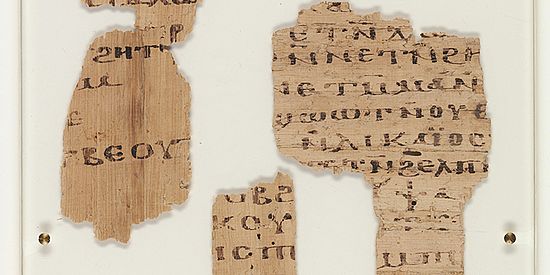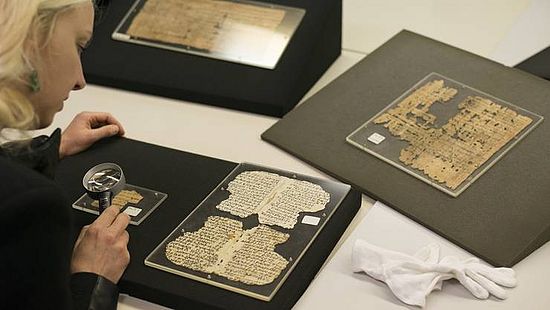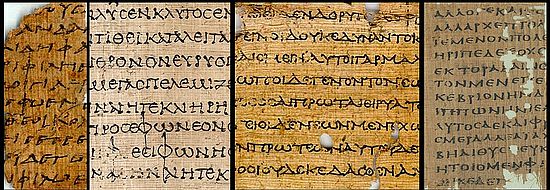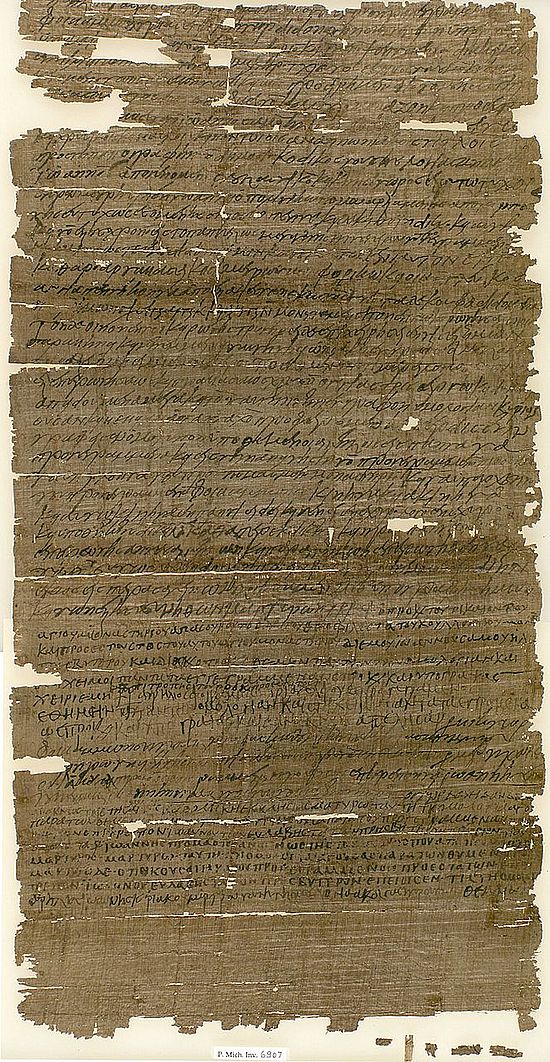Papyrology




Papyrology deals with the hundreds of thousands of ancient papyri that have survived; however, the ostraca (pottery shards), which are related in terms of content, as well as wood and wax tablets are also partially attributed to this science. For disciplinary reasons, ancient historical papyrology usually focuses on Greek-language papyri and the few Latin-language papyri. It therefore begins with the conquest of Egypt by Alexander the Great (332 B.C.) and continues through the Greek-Macedonian Ptolemaic period (332-30 B.C.) and the Roman period (30 B.C.-642 A.D.) until the Arab conquest of Egypt (642 A.D.) - and even beyond, since many documents were still written in Greek in the early Islamic period. Thus, the papyri also always show us societies between change and continuity. Through cooperation with neighboring disciplines - especially Egyptology, Ancient Oriental Studies, or Arabic Studies - it is now increasingly possible to include Demotic, Coptic, Persian, or Arabic papyri in one's own research. Each of these languages thus opens up ever new horizons for ancient historians.
Working with papyrological sources has two sides: the edition and the historical evaluation. Editing papyri means being able to read, transcribe, and translate the texts, which are often damaged and usually written in unfamiliar handwriting, in order to make them accessible to the scholarly community by bundling them into so-called editions. The specific knowledge acquired in the course of this work enables papyrologists to adequately assess the value of this special source genre and to take it into account in historical evaluation. This historical evaluation is often downright detective work: background knowledge, but also empathy are necessary in order to adequately assess the context of a particular writing and the role of the actors. Piece by piece, a window into the ancient world is thus created.
Reading for introduction to papyrology:
Rupprecht, Hans-Albert: Kleine Einführung in die Papyruskunde, Darmstadt 22005.
Bagnall, Roger S. (ed.), The Oxford Handbook of Papyrology, Oxford 2009.
Specifically on historical evaluation:
Bagnall, Roger S.: Reading Papyri, Writing Ancient History, London/New York 1995.
Quick Links
